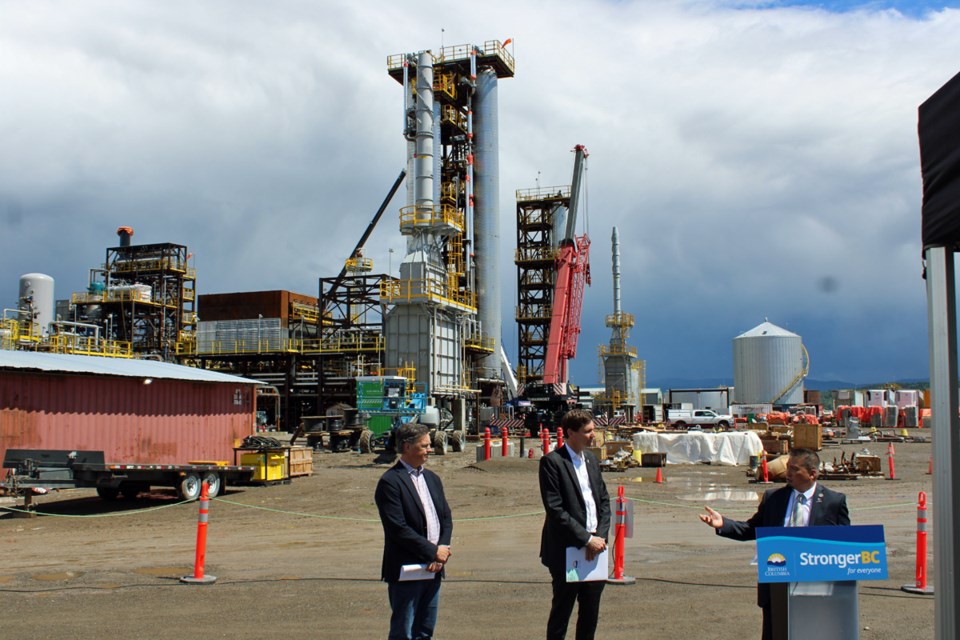Canada’s first stand-alone renewable diesel refinery, located in Prince George, could enter production by next month.
Once Tidewater Renewables’s $430 million refinery and hydrogen plant is fully operational, it will 170 million litres of low-carbon renewable diesel per year, company chairperson and CEO Rob Colcleugh said on Friday. Construction of the refinery employed a peak of 270 full-time workers during construction and will create 30 high-paying full-time jobs during operation, he said.
“There was no shortage of challenges over the last three years… (But) we’re just about reaching the finish line,” Colcleugh said. “It’s a very exciting time for us at Tidewater.”
Instead of using crude oil as feedstock, the refinery will use canola oil, tallow, used cooking oil and tall oil to produce fuel, he said. Unlike biodiesel, which is made from similar feedstocks, renewable diesel is “molecularly identical” to convention diesel, Colcleugh said.
While most engines can run on fuel mixtures with five-to-10 per cent biodiesel, renewable diesel can be substituted for conventional diesel, reducing carbon emissions by 80 to 90 per cent, he said.
Between the new refinery and its existing co-processing diesel plant at the Prince George Refinery, the company will be able to produce 180 million litres of low-carbon fuel per year – 14 per cent of the CleanBC target of producing 1.3 billion litres by 2030.
The project wouldn’t have been possible without the support of the province’s Low Carbon Fuel Standard, Colcleugh said. Under the legislation, Tidewater was awarded credits for increasing the use of low-carbon fuels.
B.C. Premier David Eby spoke at an opening ceremony for the refinery on Friday.
"A low-carbon future means high-quality jobs and clean industry for British Columbians, as this investment by Tidewater in clean diesel refining shows," Eby said. "By prioritizing reducing carbon pollution, we're opening B.C. for business and investment, and building healthier communities, while fighting climate change."
In addition to renewable diesel, the plant will also produce hydrogen using power from BC Hydro’s renewable power supply. There are 24 different hydrogen plants proposed in the province, Eby said, including a project proposed by the McLeod Lake Indian Band and Mitsubishi Power north of Prince George.
The combined potential value of those hydrogen plants is $16 billion, Eby said.
“It’s an exciting time, but we have to be ready to take it,” he said. “Our businesses do rely on affordable, reliable power.”
Prince George Mayor Simon Yu said the refinery will “put Prince George on the map,” as a centre for producing renewable, low-carbon fuels for the future.
City of Prince George economic development manager Deklan Corstanje said the project provides some welcome diversification for the city’s economy, and is the first in what the city hopes to be several major investments in the clean energy sector in the city.
“It’s all pulling towards where we what we want to be moving towards,” Corstanje said.



